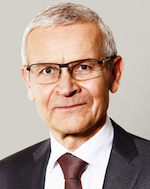Venus Business Commuications has been selected as a finalist in this year's RICS awards in the infrastructure category having achieved significant credit for its work on 'superconnected Busworks'.
Busworks, once an old Victorian bus depot, provides contemporary office premises but Superfast broadband had not been previously available.
However, a partnership approach that engaged Busworks management and BDUK's Superconnected Cities scheme levered £30,000 from the scheme to fund the majority of the project.
Superconnected Busworks has been ranked alongside high profile projects that include Fulham Jetty, Paddington Integrated Project, and Terminal 2 - The Queen's Terminal.
Brian Iddon, Director of Venus Business Communications, said: "Many small businesses believe that superfast broadband in London is either unaffordable or not available and this project illustrates this is not the case.
"Superfast services are normally delivered using Fibre to the Cabinet technology, but we implemented Superfast Broadband delivery at Busworks using a direct connection to the Venus London Network.
"This provides a more flexible lower cost solution that avoids the need for street cabinets and utilises distribution nodes within the building.
"Working closely with Superconnected Cities Scheme, the businesses in Busworks can now compete in today's digital economy.
"We would urge network providers in the industry to think innovatively about delivery mechanisms that work for smaller businesses where FTTCis not an option."
Marion Morahan, Busworks Business Centre Manager, said: "Venus proved their experience connecting multi-tenant buildings, developing a proposition to suit all needs and budgets."
The Mayor of London, Boris Johnson, added: "Today's markets are more competitive than ever and it is essential London's businesses have the cutting-edge technology at their fingertips that will enable them to drive our economy forwards.
"Venus' Superconnected Busworks is a prime example of a business taking full advantage of a scheme designed specifically to help our firms become super-connected and supercharged, ready to thrive and expand.
"They illustrate that superfast connectivity is widely available and affordable from a range of suppliers for small businesses in our city."
The winning project from those shortlisted in the Infrastructure category will be announced on 30th April at an Awards Dinner in the Lancaster London Hotel.
The RICS Awards showcase the achievements of the most inspirational regional initiatives and developments in land, property, construction and the environment.

 René Svendsen-Tune (pictured) is to take the reins as Jabra CEO following the resignation of Niels Svenningsen who cited 'family reasons' as the reason for his departure.
René Svendsen-Tune (pictured) is to take the reins as Jabra CEO following the resignation of Niels Svenningsen who cited 'family reasons' as the reason for his departure. Hundreds of Softcat staff from regional offices across the UK made a heroic effort for Comic Relief, dressing as superheroes and cartoon characters and participating in various fundraising activities, raising over £10,000 for poor and disadvantaged people in the UK and the world's poorest countries.
Hundreds of Softcat staff from regional offices across the UK made a heroic effort for Comic Relief, dressing as superheroes and cartoon characters and participating in various fundraising activities, raising over £10,000 for poor and disadvantaged people in the UK and the world's poorest countries. Rainbow has gone full throttle with a sponsorship deal that will give the Kent based reseller some high octane TV coverage on Sky Sports and exposure across the UK's major race circuits.
Rainbow has gone full throttle with a sponsorship deal that will give the Kent based reseller some high octane TV coverage on Sky Sports and exposure across the UK's major race circuits.